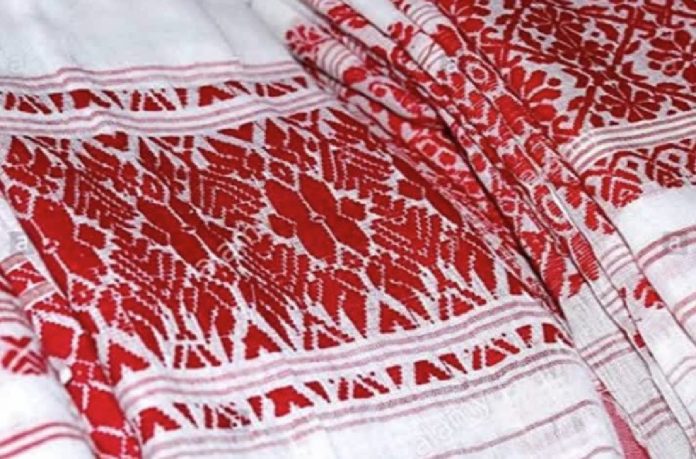The Government of Assam is procuring a record 9.25 lakh gamosa from 5.64 lakh weavers of the State, CM Dr Sarma stated
GUWAHATI, April 10: Assam Chief Minister Dr Himanta Biswa Sarma today promised to send a gamosa to anyone who would like to receive a piece of the traditional handwoven cotton cloth — also a symbol of Assamese culture and pride, and an important marker of the cultural identity of the Assamese race — this Rongali Bihu.
“Would you like to receive a Gamosa this Bihu —from the people of Assam? Let me know, and I’ll be happy to send one your way,” Chief Minister Dr Sarma wrote on his social media handles today (April 10).
“This year, I had the honour of sharing Bihuwan with nearly one million people in Assam and beyond—a heartfelt gesture of love and tradition, and a step to ensure our weavers receive a decent remuneration for their craft,” his post further mentioned.
Chief Minister Dr Himanta Biswa Sarma has been sending specially-packed gamosas to various people — eminent intellectuals, teachers, achievers and journalists included — as a token of love, affection and appreciation ahead of Rongali Bihu.
He had stated on Tuesday (April 8) that his government is procuring 9.25 lakh gamosas from 5.64 lakh weavers of Assam which he said are being dispatched to citizens across the country.
“This Bihu is special for our weaving community.
For the first time ever, the Assam Government is procuring 9.25 lakh gamosas from 5.64 lakh weavers in the state.
These gamosas, a symbol of Assam, will be dispatched to citizens across the country.
Vikas Bhi, Virasat Bhi,” he had written on Tuesday.
Weavers, meanwhile, have expressed their happiness over the initiative taken by Chief Minister Dr Sarma which they said would benefit them economically besides also contributing to the crackdown launched by the government on gamosas woven in power-looms outside Assam which then make their way to the State and become cheap substitutes of the hand-woven ones.





